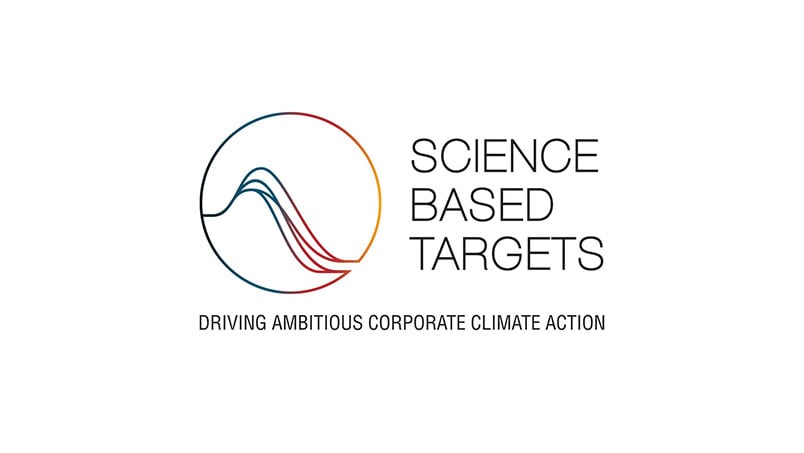Science-Based Targets (SBT) support
Achieve success by aligning with the Science-Based Targets initiative (SBTi).
By partnering with Trident, you gain the assurance to start and navigate your SBTi journey effectively. Our support ensures your emission reduction targets align with the latest climate science.

What are Science-Based Targets?
Science-Based Targets (SBTs) give businesses a clear, practical pathway to cut greenhouse gas (GHG) emissions, helping to protect against the worst impacts of climate change while securing future business growth—all with the ultimate goal of achieving net zero.
Targets are considered ‘science-based’ when aligned with the latest climate science, meeting the Paris Agreement’s goal of limiting global warming to 1.5°C above pre-industrial levels.
Near-term and long-term Science-Based Targets
Science-Based Targets drive immediate action while preparing for long-term transformation. Near-term targets focus on reducing emissions over 5–10 years, keeping organisations on track with the 1.5°C pathway. Long-term targets look ahead to 2050, embedding sustainability into every aspect of operations and achieving deep emissions cuts.
This balanced approach ensures organisations act now while staying aligned with long-term goals. It helps tackle challenges, maintain accountability, and avoid delays or short-term thinking. Aligning financial and operational priorities with climate action also builds credibility with stakeholders.
With clear 2030 and 2050 goals, businesses can make tangible progress today while preparing for a net-zero future. Once long-term targets are met, any remaining emissions must be permanently removed, securing sustainability.
The benefits of setting science-based targets
Addressing climate change
Science-based targets align company emissions goals with current climate science, aiding the mitigation of climate change effects.
Enhancing accountability
These targets set benchmarks for measuring progress, improving accountability and transparency in reducing greenhouse gas emissions.
Competitive advantage
Adopting science-based targets showcases commitment to sustainability, attracting eco-conscious consumers, investors, and talent for a competitive edge.
Risk mitigation
Scientifically informed targets help companies mitigate climate change risks like regulatory shifts, physical impacts, and changing consumer preferences.
Innovation and efficiency
Science-based targets drive innovation, efficiency, cost savings, and sustainable technology development.
The Science-Based Targets initiative (SBTi)
The Science-Based Targets initiative (SBTi) is a partnership between the Carbon Disclosure Project (CDP), the United Nations Global Compact, the World Resources Institute (WRI) and the World Wide Fund for Nature (WWF).
Its goal is to mobilise the private sector, encourage urgent climate action and guide companies when setting science-based targets. Through rigorous assessment and validation, SBTi ensures that targets are ambitious, credible, and contribute significantly to combating climate change.
More than 4,000 businesses around the world are using the SBTi.
The SBTi Criteria
The Science-Based Targets initiative (SBTi) evaluates targets on ambition, scope, timeframe, boundary, credibility, and transparency. Targets must align with the Paris Agreement, cover all emissions, include relevant sources, set clear timeframes, and be publicly disclosed.
This ensures businesses commit to ambitious, achievable, and comprehensive targets that effectively contribute to global climate goals.
The benefits of setting Science-Based Targets
Addressing climate change
Science-based targets align company emissions goals with current climate science, aiding the mitigation of climate change effects.
Enhancing accountability
These targets set benchmarks for measuring progress, improving accountability and transparency in reducing greenhouse gas emissions
Competitive advantage
Adopting science-based targets showcases commitment to sustainability, attracting eco-conscious consumers, investors, and talent for a competitive edge.
Risk mitigation
Scientifically informed targets help companies mitigate climate change risks like regulatory shifts, physical impacts, and changing consumer preferences.
Innovation and efficiency
Science-based targets drive innovation, efficiency, cost savings, and sustainable technology development.

Turn SBTi uncertainty into confidence
Feeling unsure about tackling sustainability or carbon reporting? You’re not alone. Many leaders share this uncertainty, but with the right approach, those doubts can become confidence.
The Science-Based Targets initiative (SBTi) provides a clear and practical pathway to net zero, helping businesses navigate carbon reporting without guesswork. What once felt bold is now the standard across global supply chains.
With the right tools and support, you can embrace sustainability, stay ahead of the curve, and lead the way in a low-carbon future.
The growth in SBTi: Scale & impact
Science-based climate action is gaining momentum. Over 9,000 businesses have committed to the Science-Based Targets initiative (SBTi), creating measurable, impactful paths to net zero.
Why is SBTi growing so quickly? Because it works. Its data-driven framework helps businesses create practical, results-oriented plans. With adoption rates doubling each year, SBTi is helping industries deliver real change and meaningful progress.
No matter your company’s size, SBTi makes sustainability achievable, encouraging meaningful steps toward a low-carbon future.
Challenges businesses face in adopting SBTi
Adopting Science-Based Targets can be challenging. Managing Scope 3 emissions, overcoming resistance to change, and tackling supply chain collaboration issues are significant hurdles. Financial pressures and a lack of skilled sustainability professionals make the path even harder for some industries.
Despite these challenges, businesses can succeed with the right support. We’ll help you create a clear, achievable plan, turning net zero into a practical, long-term success story.
How we help you on your SBTi journey
We guide you through the SBTi certification process with ease, helping you set ambitious, Science-Based Targets and stay on track to meet your goals.
.png)
.png)
Simplifying your path to Science-Based Targets with a Carbon Reduction Plan
Science-Based Targets require a clear plan to make progress. A Carbon Reduction Plan (CRP) provides this framework, outlining strategies, decarbonisation projects, supplier challenges, and measurable goals to show a real commitment to sustainability.
A CRP ensures transparency with regular progress monitoring and reporting while driving continuous improvement. By optimising energy use and taking measurable steps, you can confidently grow your business in a low-carbon future.

Science-Based Targets (SBT) & carbon reporting essentials guide
As more businesses adopt Science-Based Targets, it’s essential to stay ahead. Carbon reporting not only reduces environmental impact but also boosts your reputation and ensures compliance with regulations.
Our guide, Carbon Reporting Made Simple, breaks down everything from measuring emissions to creating actionable reports aligned with Science-Based Targets. Download it today to take your next step toward a sustainable future.
Contact us today
Speak to one of our SBT experts
Schedule a free consultation to learn how Trident can help you meet your Science-Based Targets and achieve your sustainability goals.
Assess
Scope 3 emissions screening.
Measure
Calculate your carbon footprint.
Select target setting approach
There are two available methods for scope 1 and 2, an four methods for scope 3. We’ll advise and support on the most suitable
Commit
Submit a letter of commitment, to demonstrate your intent to set a science-based target.
Develop
Work on outlining an emission reduction target, which meets the SBTi criteria.
Submit
Present your agreed targets to the SBTi for official validation.
Communicate
Announce your target and share with relevant stakeholders.
Disclose
Commit
We assist businesses in determining whether to set near-term or both net-zero and near-term targets. Once decided, Trident will guide you through the process of committing to Science-Based Targets by completing the necessary form.
Develop
Using your baseline Scope 1, 2, and 3 emissions data, we develop targets that align with SBTi criteria. If applicable, Trident can also help develop Forest, Land, and Agriculture (FLAG) targets, provided you meet the SBTi FLAG requirements.
Submit
After finalizing the targets, Trident will handle the SBTi submission form and schedule a validation slot.
Validate
During the validation process, Trident will address all technical inquiries.
Publish
We offer guidance on effectively disclosing your validated SBTi targets to the public.
Track Progress
Trident will supply the necessary information to showcase your annual progress, using our Pulse Software.
The SBTi criteria
The science based targets initiative (SBTi) approves targets considering ambition, scope, timeframe, boundary, credibility, and transparency, striving for net-zero emissions. Targets must match Paris Agreement goals, cover all emissions, set a clear timeframe, include relevant sources, rely on strong science, and be publicly disclosed. This ensures targets are ambitious, comprehensive, achievable, and transparent, contributing effectively to global climate mitigation efforts and the transition to a net-zero future.
How we can help
At Trident, we're committed to supporting businesses on their sustainability journey. Our team of experts specialises in implementing science-based targets tailored to your industry and organisational needs. From initial assessment to target setting and implementation, we provide comprehensive support every step of the way.
Science-Based Targets related news
Science-Based Targets Initiative explained:
Over the past few decades, there have been several agreements, pledges and initiatives developed to start tackling climate change. One recent initiative that has been developed is the Science-Based Targets initiative (SBTi).
The difference between near-term and long-term SBTs:
Get to grips with the key differences between near and long-term science-based targets, and the importance of the two types of targets.
The ABCs of SBTs:
We've highlighted and defined all the key terms you should know that relate to science-based target setting .




